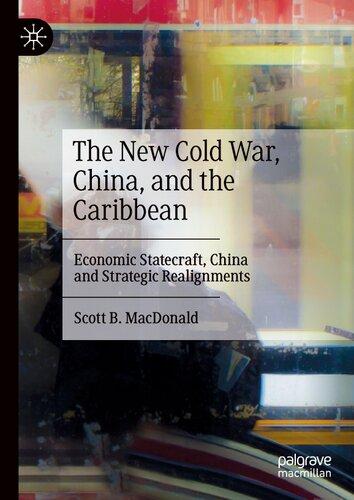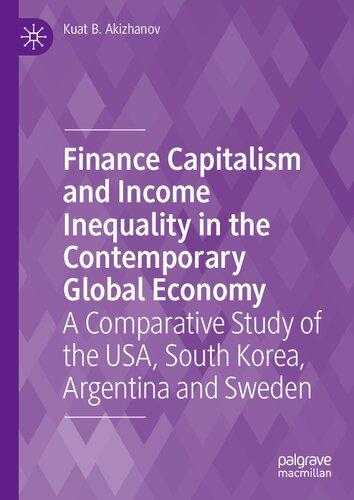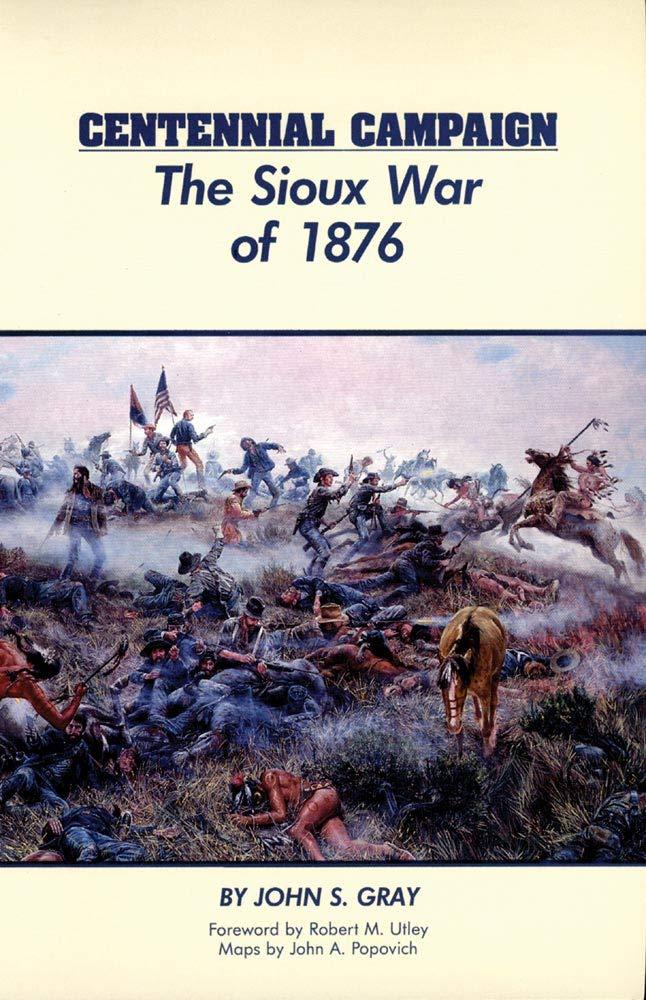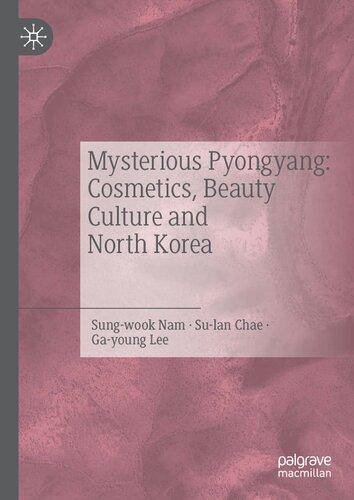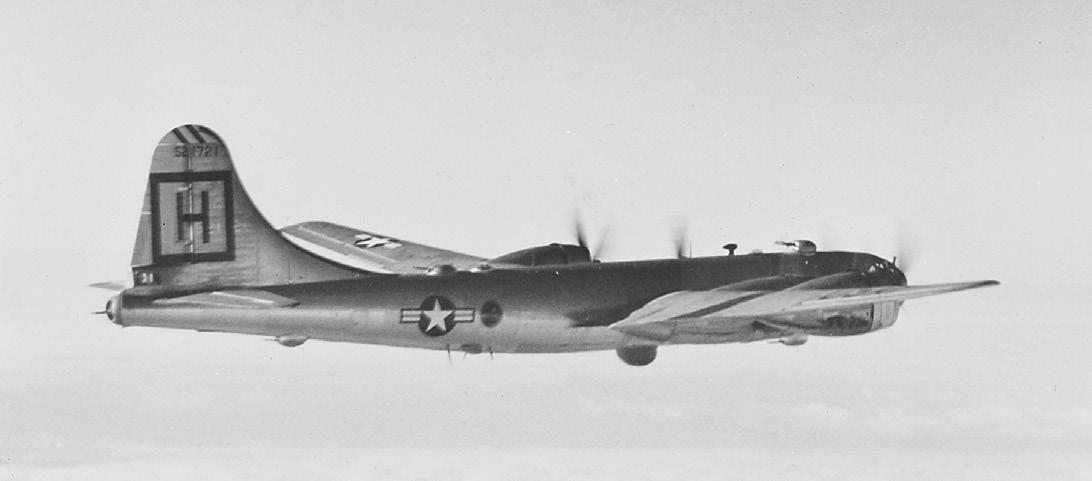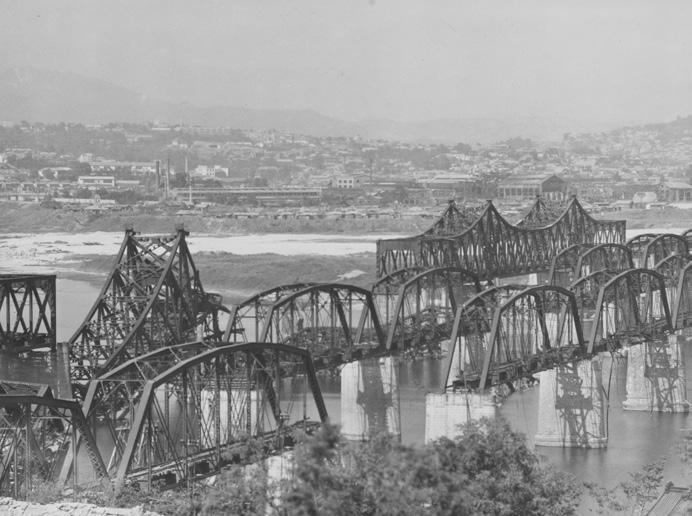ATTACKER’S CAPABILITIES
UN air power
In July 1950, the US Far East Air Force (FEAF), with its headquarters in Japan, was commanded by Lt Gen George E. Stratemeyer, a veteran of the Southeast Asian campaign of World War II. Its main role was the defence of Japan, and its area of responsibility stretched 3,000 miles from the Philippines to Japan, extending southeastwards another 1,500 miles to Guam. The main strength of FEAF was concentrated in the 5th Air Force (5th AF), also based in Japan, under the command of Lt Gen Earle E. Partridge. The 5th AF, whose area of responsibility included Korea, comprised two light bomber squadrons of North American B-26 Invaders of the 3rd Bombardment Group (Light) – BG(L) – and three Lockheed F-80 Shooting Star-equipped Fighter Groups, the 8th Fighter Bomber Group (FBG), the 35th Fighter Interceptor Group (FIG) and the 49th FBG. In addition to these forces, the 13th AF provided some strategic bombing capability with the two Boeing B-29 Superfortress squadrons of the 19th Bombardment Group (BG), which were based on Guam, as well as a further F-80 Group, the 18th FBG, based in the Philippines. A fifth F-80 Group, the 51st FIG, operated from Okinawa under the auspices of the 20th AF.
The surprise attack on South Korea by the KPA found the US and allied forces in the region completely unprepared for a military campaign on the peninsula. The fighter groups had only recently converted from the North American F-51 Mustang to the F-80 and had not yet practiced ground-attack techniques. Furthermore, the B-26s of the 3rd BG(L) were in a poor condition because of a shortage of spare parts. The short-range F-80 was not well suited to missions involving the relatively long transit from Japan to Korea, and the B-29s faced a round-trip distance of some 4,000 miles from Guam to targets near Seoul, well beyond their tactical range. To rectify the former problem, some F-80 units were converted back to the longer-range F-51; meanwhile, the latter problem was addressed by moving the 19th BG to Kadena, on the island of Okinawa, 1,000 miles nearer to the target area.
Within days of the invasion, and despite their shortcomings, all USAF (United States Air Force) aircraft including the B-29s were concentrated in tactical support of the South Korean
The Douglas F3D Skyknight, operated by the US Marine Corps night-fighter squadron VMF(N)-513, proved its worth as a night escort fighter. (NMNA)
OPPOSITE AIRFIELDS 1950–53
In the first weeks of the war, the US/UNC operated from bases in Japan (and Okinawa) before deploying into South Korea; the aircraft were evacuated back to Japan in August 1950 but started to deploy forward again as UNC forces pushed northwards. However, the bases in Japan and Okinawa continued to be used by UNC heavy bombers. During the entire war, the Soviet and Chinese air forces operated from bases in Manchuria.
and American ground forces which were carrying out a courageous fighting withdrawal southeastward towards Pusan. To its great credit, the USAF overcame huge practical difficulties to deliver the air power that largely slowed the KPA advance until it could be stopped completely. By the end of July, enough US Army troops had been deployed in Korea to hold the KPA at the Pusan perimeter. Meanwhile, USAF reinforcements had rushed to Japan, including four more B-29 groups – the 22nd, 92nd, 98th and 307th BGs – which deployed from the continental USA.
The Douglas B-26 Invader (not to be confused with the Martin B-26 Marauder of World War II) was used by 5th AF for day and night interdiction. Later in the conflict, B-26s carried out defence-suppression support for B-29 night raids. (US National Archive)
The largest and most powerful heavy bomber produced in World War II, the B-29 Superfortress, was already obsolescent by the outbreak of the Korean War and had been reclassified as a ‘medium bomber’. Nevertheless, in 1950 it still constituted a powerful striking force: powered by four 2,200hp Wright R-3350-23 Cyclone engines, the B-29 had an operational ceiling of 33,600ft (9,700m) and a combat range of 3,250 miles (5,230km). It could carry up to 20,000lb (9,000kg) of bombs internally. USAF bombers were organized in Groups, each normally composed of three squadrons of 15–20 aircraft. Despite the age of their mounts, B-29 crews were well trained and could achieve good bombing accuracy. While the Pacific-based crews of the 19th BG relied on visual bombing using the Norden bombsight, those based in the continental USA (the 22nd and 92nd BGs) were equipped with the AN/APQ-13 radar which gave them a ‘blind bombing’ capability. This equipment
USSR
CHINA
Mukden
Liaoyang
US/UNC airfields
Soviet/Chinese airfields
Demarcation Line June 25 1950
Front Lines September 14 1950
Front Lines 25 November 1950
Armistice Line July 27 1953
Anshan Tatungkao
Antung
Sea of Japan
KOREA
Kimpo K14
Sea
Pyongtaek K6
Suwon K13
Osan-ri K55
Pohang K3
Taegu K2
Pusan
Busan
Okinawa
Kadena AB
Itazuke AB
AB
AB
Yellow
JAPAN
Johnson
Yokota
The heaviest bomber of World War II, the Boeing B-29 Superfortress, was obsolescent and had been reclassified as a medium bomber by the outbreak of the Korean War. (US National Archive)
was a development of the World War II-vintage British H2X 3cm radar, which in practice was really only effective for finding coastal or estuarine targets. It was fortunate that most of the strategic targets in North Korea were situated close to the coast or on one of the wide estuaries that punctuated the west coast.
Even without having to deal with target defences, B-29 crews faced a number of challenges from the climate in Korea. During the winter months, the strong jet streams blowing across northern Korea could generate heavy crosswinds, affecting bomb fall and weapon aiming. During the summer, the southerly monsoon brought heavy storm clouds which made visual target acquisition difficult, hence the need for a radar-directed bombing capability. Depending on the expected weather conditions over the target, Superfortress crews used three different bombing tactics. If the weather was good enough for visual target acquisition, they would fly in ‘vics’ of three aircraft, with wingmen dropping their bombs on the command of the element leader, who aimed visually using the Norden bombsight. If low cloud covered the target, the ‘vic’ formations would also drop on the command of the element leader, but, in this case, the leader would drop radar-aimed bombs using the AN/APQ-13 equipment. The final tactic, known as ‘Hometown,’ was used when higher-level cloud precluded formation flying: in this case, the bombers would fly in a one-minute stream and aim their bombs individually by radar.
Another bombing aid, which was to come into its own late in 1951 when the B-29s moved almost exclusively to night bombing, was the SHOrt-RANge (SHORAN) system. Unlike the AN/APQ-13, which was limited to targets close to the coastline, SHORAN could be used over the whole of North Korea. The constituent parts of SHORAN were two AN/APN-2 ground station beacons which fed range and azimuth information to an AN/APN-3 transceiver mounted in the aircraft. The bomber crew followed a range arc from one beacon and released their weapons when they intercepted the azimuth signal from the second beacon. One SHORAN beacon was first sited on South Mountain (Namsan), Seoul, and the other on Tokchok-To (Deokjeokdo) island to the west of Inchon. The


system was first in use between November 12 and December 17, 1950, but the results were disappointing because of the poor condition of the beacons and inadequate training of the beacon crews. The beacons were withdrawn in December 1950, but redeployed in early 1951 after further training of the crews and maintenance of the equipment. During this second deployment, four beacon sites were established, two (Able and Charlie sites) on the offshore islands in the Yellow Sea and two (Baker and Dog sites) on mountains close to the 38th Parallel. This time SHORAN proved to be more reliable, and in ideal conditions it would eventually produce an accuracy of 485ft Circular Error Probable (CEP). However, there were still a number of practical problems with using SHORAN in Korea that had to be overcome. Firstly, the navigational precision of the system depended on it having an accurately plotted position for the target, so it was limited to some extent by the inexact mapping coverage of North Korea. Secondly, at longer ranges, the bombers had to fly higher in order to receive the SHORAN signal, with a commensurate reduction in their bombing accuracy. Finally, the B-29 crews in Japan were not familiar with the SHORAN equipment and techniques, having only about eight practices before flying operational missions, whereas it was reckoned that many crews needed as many as 35 sorties to become proficient. Thus, the initial night-bombing operations in November 1951 produced a CEP of 1,220ft. All B-29 crews were given further SHORAN training, but the problem was only properly resolved in the summer of 1952 when experienced SHORAN-qualified replacement crews from the 90th Strategic Reconnaissance Wing began to arrive in theatre. Another drawback with SHORAN was that the transceiver interfered with the Electronic Counter Measures (ECM) equipment carried on the aircraft, so the ECM had to be switched off during the bombing run, making the bomber vulnerable to antiaircraft fire at the most critical part of the mission. Nevertheless, SHORAN techniques were used by the B-29 force, particularly during night operations, with growing success up until the ceasefire in 1953.
With few other strategic targets in North Korea, one of the first tasks of the B-29 force was to destroy the bridges over the large rivers that crossed the main supply routes being
Developed during World War II, the Norden bombsight enabled B-29 bombardiers to aim their weapons visually with great precision. (© Corbis via Getty Images)
Another random document with no related content on Scribd:
this, Sir,) they set about this pious work of defamationmere heartily in the fields.” I was reading further, expecting to find your parallel. But I see it is wanting. Are the Methodists then originals in this particular? Or could you, among all the histories of your eminent saints, find no instances of St. Anthony’s, St. Francis’s, and St. Ignatius’s carrying on this pious work of defamation in their days? Will you suffer me to supply the deficiency, by laying before you some examples, which, though of an earlier date, may, by unprejudiced persons, be esteemed as suitable, as any of a popish extraction? In the New Testament, (a book you seem to have laid aside, or at least little adverted to, when writing your pamphlet) we are informed, That when John Baptist, “saw many of the Pharisees and Sadducees come to his baptism, he said unto them, O generation of vipers, who hath warned you to flee from the wrath to come?” The same book tells us, that St. Stephen being full of the Holy Ghost, and within a few moments of his death, said to the whole Jewish sanhedrim, “Ye stiff-necked and uncircumcised in hearts and ears, ye do always resist the Holy Ghost; as your fathers did, so do ye.” And our LORD JESUS CHRIST himself, the master of both these, in one chapter denounces no less than thirteen woes against the scribes and pharisees, whose chief power of doing good, and promoting the common salvation, he well knew, depended upon their character, as much as any clergy in any age of the church whatsoever. Not that I would be understood by this to insinuate, that all which the Methodist preachers have spoken against the clergy, was spoken in the same Spirit, or with the like divine authority, as our LORD, his harbinger, and his protomartyr, spoke. That would be carrying the parallel too far indeed. There is generally much, too much severity in our first zeal. At least there was in mine. All I would therefore infer is this, that what some (not to say you, Sir,) may term “Gall of bitterness and black art of calumny,” may be nothing but an honest testimony against the corruptions of a degenerate church, and may, without any degree of wickedness, be supposed to come from the “Spirit and power given from GOD.” If we deny this, not only Isaiah, Jeremiah, and almost all the prophets, but likewise JESUS CHRIST and his Apostles, must be looked upon by us, (as I suppose
they were by the men in whose day they lived) as great slanderers, and dealing much in this black art of calumny and defamation.
But, if the Methodists have been so much to blame, for carrying on this pious work of defamation, in the church and their journals; will that authorise you in practising the same black art in your pamphlet? Give me leave (since you have taken that liberty with me) to gather some of your flowers on this occasion.
“This dangerous and presumptuous sect; ♦strolling predicants; itinerant enthusiasts; methodistical enthusiasts;” with many other flowers of a like nature, though not of a very scriptural scent, may be picked off almost every page of your performance. Upon the review of which, I suppose you will own, that you are at least even with the Methodists. Only it must be allowed, there is this difference; you are taking up a trade, which they, as far as I know to the contrary, have for some time laid down.
♦ “stroling” replaced with “strolling”
And why must you disturb the dead on this occasion? Were there not flowers enough to be gathered out of Mr. Wesley’s Journal and mine, without calling up Mr. Seward’s ghost (as you have in effect done, by quoting his Journal) in order to terrify your readers? Good man! He has long since entered into his rest, and consequently cannot now answer for himself. Permit me to speak a word or two in behalf of my deceased friend. He was certainly a serious warm christian, but (like his fellow-traveller) in the heat of his zeal, spoke and wrote some unguarded things. His and my treatment of Archbishop Tillotson, was by far too severe. We condemned his state, when we ought only in a candid manner, (which I would do again if called to it) to have mentioned what we judged wrong in his doctrines. I do not justify it. I condemn myself most heartily, and ask pardon for it; as, I believe, he would do, was he now alive. But then, do not you still go on, Sir, to imitate us in our faults: Let the
surviving Methodists answer for themselves: let Sewardand Tillotson lie undisturbed. And if you think me blameworthy (as I certainly was) to write so disrespectful of the one; why should you, by making an ill-natured quotation, rake as it were into the very ashes of the dead, only for the poor gratification of digging up a flower, to blacken the memory of the other?
But to proceed. For several pages, you go on imitating us in this same pious work of defamation. If you can bear to read your own words, I will transcribe a few of them: section 6. page 17. “But though these strolling predicants have allured some itching ears, and drawn them aside by calumniating their proper pastors, they have sense enough to know the itch will go off, and their trade not continue long, unless they can produce something novel or uncommon; what the wandering sheep have not been used to in their churches. Therefore they must find out, or rather revive such peculiarities, as have formally attended enthusiasms, and are most likely to captivate the vulgar. Hence their”—But hold, Sir;—and before you run yourself quite out of breath, I intreat you to stop a little, whilst I put to you one or two questions. Believe you these things of the Methodists? I suppose you believe them: otherwise, Why assert them so strongly? How then can you put even a perhaps to your supposition of their “setting out with a realmotiveof sincere piety?” Had not you best alter the title of your book, or at least make some addition to it? Let it run thus: “The enthusiasm and imposture of the Methodists and Papists compared.” For surely, unless persons were arrived at a very high degree of imposture, they could not purposely (as you seem to infer they did) design these things.
By your leave, we will examine the evidence you produce in proof of these bold assertions: “The first necessary point for drawing followers, is to put on a sanctified appearance, by a demure look, and precise behaviour, in discourse or silence, in apparel and food; and other marks of external piety.” Section 7. page 18. Again, section 8. page 20. “At first, the Methodists, as a shew of humility, made it a point not to ride, either on horseback or in a coach,
though occasionally, and for conveniency-sake, they have since thought proper to deviate from their rule.” Well, Sir, you see then they are not altogether incorrigible. Let them alone; and who knows but for their conveniency-sake, and it may be from a deeper knowledge of the world, of themselves, and of GOD, they may be reformed in some other particulars?
“Upon the same account, you say, section 9. page ibid. fine cloathsand richfurniturestand absolutely condemned:” (not by me, it seems, for I find no quotations out of my Journals annexed) “But oh! (as a part or consequence of this) how good and saint-like it is, to go dirty, ragged, and slovenly! And how piously did Mr. Whitefield therefore take care of the outward man! My apparel was mean, &c.” Section 10. page 21. Really, Sir, whilst I read this part of your performance, I could not help thinking, that a person of your turn of mind, would have been apt to have joined with those naughty boys, who, when they saw that demure, rough, hairy, slovenly enthusiast, called Elijah, followed after him, and cried, “Go up, thou bald pate, go.” Or, if you had lived in John Baptist’s time, and seen him come preaching in the wilderness, with a camel-hair garment, and a leathern girdle about his loins; especially if you had heard, that his meat was only locusts and wild honey; would you not have been tempted, think you, to give in your verdict amongst those who said, “He had a devil?” Know you not, that these are extremes which young awakened persons are apt to run into when under a sense of sin, and influenced by what the Apostle calls the spirit ofbondage? Do I not mention them as such? And are they not things which of themselves fall off, when persons are brought into the comforts of religion, and have received the spiritofadoption, whereby they cry, Abba, Father? But I shall leave you at present, to make as merry as you will with the sanctified appearances, and dirty ragged cloaths of these enthusiastical Methodists. Let us pass on to your 11th section, page 22. “Of this nature likewise, is their utter condemnation of all recreation, in every kind and degree. Mr. Whitefield laments,” (indeed I do, Sir, even now I am grown older) “that in his younger days he was not convinced of the absolute unlawfulness of playing
at cards, and of reading and seeing plays.” And if you are in advanced years, and a clergyman too, and are not convinced of the unlawfulness of cards, and can find time from your other studies and duties of your calling, to see or read such plays as the generality of ours are, I think you ought to lament it too. For what says our church in her 75th canon? “No ecclesiastical persons shall at any time, other than for their honest necessities, resort to any tavernsor alehouses; neither shall they board or lodge in any such places. Furthermore, they shall not give themselves to any base or servile labour, or to drinkingor riot, spending their time idly by day or night, playing at dice, cards, or tables, or any otherunlawfulgame; but at all times convenient, they shall hear or read somewhat of the Holy Scriptures, or shall occupy themselves with some other honest study or exercise, always doing the things which shall appertain to honesty, and endeavouring to profit the church of GOD; having always in mind, that they ought to excel all others in purity of life, and should be examples to the people to live well and christianly, under pain of ecclesiastical censures to be inflicted with severity, according to the qualities of their offences.” O when shall this once be!
In your 12th section page 24. you go on to rally these enthusiastical Methodists for their seemingcontemptofmoney. And again, section 13. page 26. you say, “Another bait to catch admirers, and very common among enthusiasts, is a restless impatience and insatiable thirst of travelling, and undertaking dangerousvoyagesfor the conversion of infidels; together with a declared contempt of all dangers, pains, and sufferings.” And then, after drawing your usual comparison between these enthusiastical Methodists and popish saints, you make this judicious remark, “The windmill is indeed in all their heads.”
Had I a mind to return your false and low wit, I might reply, “There is a greater windmill in thine own;” but at present, I am too serious to make sport with my own deceivings. Surely, Sir, you forget yourself, or you never would write thus at random: for is there any
thing, that the blessed Author of our religion more recommends to his disciples, than to “take heed and beware of covetousness,” and to “take heed, lest at any time their hearts should be overcharged with surfeiting and drunkenness, or the cares of this life?” What said St. Peter? “Silver and gold have I none.” What says St. Paul? “But thou, O man of GOD, flee these things.” And in respect to contempt, and sufferings for the gospel, does not our LORD command us to expect, to prepare for, and rejoice in them? Nay, does he not bid us to leap for joy, and be exceeding glad, when we have all manner of evil spoken against us falsely for his name’s sake? In obedience to this command, did not the great Apostle of the Gentilesdeclare, that he took pleasure in infirmities, in reproaches, in necessities, in persecutions, in distresses for CHRIST’s sake? Did he not, like his LORD, go about doing good? Was he not filled with a holy restless impatience and insatiable thirst of travelling, and undertaking dangerous voyages for the conversion of infidels? And had he not a declared contempt of all dangers, pains, and sufferings, when, like a true christian hero, he said to his mourning friends, “What mean ye to weep and break my heart? I am ready not only to be bound, but to die also for the LORD JESUS?” Dare you, Sir, call the Apostles enthusiasts? Or think you all this was only a baitto catch admirers? And yet, what have you done less, by asserting, that an insatiable thirst of travelling, &c. is very common among enthusiasts? I add, among our LORD and his Apostles also: and can we copy after more unexceptionable examples?
“But the Methodists contempt of money is only a seeming contempt.” That is more than you know. Here you are again invading the divine prerogative. The great day will determine this. In the mean while, I would observe to you, that whatever can be produced out of any of my writings, to prove that I have desired, or prayed for ill usage, persecution, martyrdom, death, &c. I retract it with all my heart, as proceeding from the overflowings of an irregular, though well-meant zeal. However it might be with me formerly, I now find myself no ways disposed to say with Peter, “Though all men deny thee, yet will not I.” Alas! alas! we know not what feathers we shall
be, when tossed in the wind of temptation! Sufferings for the cause and cross of CHRIST, will come fast enough of themselves, without our praying for them. But should the Methodists be called even to die for the cause in which they are embarked, as I am verily persuaded it is the cause of GOD, so I doubt not but suffering grace will be given for suffering times, and the Spirit of CHRIST and of glory will rest upon the sufferers souls.
But it is time to follow you to your 14th section page 31. “The pious cruelty of corporal severities, or mortification by tormenting the flesh, is another common method of gaining a reputation for sanctity. Such as long and rigorous fastings, gashing and flaying the body with scourges, armed with rowels and sharp tags, and rolling naked in thorns and thistles.” But these last particulars, you say, “Our own disciplinarians cannot, in any tolerable measure, pretend to come up to.” What occasion was there then for mentioning them? Only to cast a popular odium upon these enthusiastical Methodists. Hoc est æerugo mera. “However, something of this kind we have from their own relation.” And something of this kind we have in the Evangelist’s relation of the life of JESUS of Nazareth; who, as we are informed, before he came out into his public ministry, underwent a long and rigorous fasting, even of forty days and forty nights. And something of this kind we have in the relation that disciplinarian the Apostle Paulgives of himself; for he tells us he was in fastings often. It is true he does condemn (as you observe, page 33.) that
σώματος, the not sparing of the body, as useless and superstitious, when done in order to recommend us to the favour of GOD, or put in the place, or joined with the merits of JESUS CHRIST. Yet elsewhere, he informs us, that he made it his common practice to keep his body under, (ὑπωπιάζω) and bring it into subjection: and think you all this was only to “gain a reputation for sanctity?” If you will believe himself, it was for a nobler and more important end, “Lest while he preached to others, he himself should be a cast-away.” And how do you know but these Methodists might, at their first setting out, have used, and even now may use abstinence for the same purpose? Nay, that this very motive led them into some extremes in it, which
however must be esteemed an error of the right side? Why will you still persist in taking the keys out of the hands of Omniscience, and presumptuously judge the intentions of people’s hearts? If we had a mind to imitate you in this rash way of judging, might not we suspect, (as your pamphlet came out in that season) that in order to wound our church governors through the sides of the Methodists, you intended this part of your pamphlet as a burlesque upon them, for enjoining such a longandrigorous fasting, as that of forty days, commonly called Lent?
I should now proceed, in order, to the examination of your 15th, 16th, and 17th sections; but as these, together with ♦ the 19th, wholly refer to Mr. Wesley, I shall leave you to his correction, if he thinks proper to take you in hand. However, there is something so extraordinary in your 17th section, that, I think, it calls for a cursory remark. “But, previous to this elevated state, that we may not wander too far from the saints progress, comes their conversion; which, as another instance of fanatical peculiarities, they represent as sudden and instantaneous.” Instantaneous conversion, a fanatical peculiarity! I presume instantaneous regeneration must be a fanatical peculiarity also. What then becomes of that Diana of the present age, baptismalregeneration? Which must be instantaneous, and that always too, if every child is really regenerated when baptized?
♦ removed duplicate word “the”
But this only by the by. In your 18th section, page 43. you return to me. “After these sudden conversions, usually they receive their assurances of salvation; and these (as also the proofs of their conversion) are certainly known, heard, seen or felt; they can ascertain the particular time and place of their receiving them; as so many seals of the Spirit.” These you call, page 44. “Presumptuous imaginations.” Is assurance of faith then, in your opinion, a presumptuous imagination? For you not only ridicule the Methodists
way of expressing it, which in several respects may have been unguarded; nor are you content with asserting, that some who really had not this assurance, have presumptuously imagined they had it, which we readily grant; for there is counterfeit as well as current coin: but you seem to explode the thing itself. And yet you intend in this pamphlet, to draw a parallel between the Methodists and Papists. Could you give a greater proof of your symbolizing with the Papists yourself? Or need you be informed, that one grand article of the council of Trentis this, “That there is no such thing as a person’s knowing that his sins are forgiven him, or being assured of his salvation;” and that with good reason: for if there be such a thing as being assured of the forgiveness of our sins by the internal testimony, whether mediate or immediate, of the Spirit of GOD; and if a person ought to be satisfied only with that, then how could the people be brought to believe in, and trust to the mere external verbalabsolutionofapriest? Our church, on the contrary, in one of her homilies, says, that a true faith “is a sure trust and confidence in GOD, that by the merits of CHRIST, his sins are forgiven, and he reconciled to the favour of GOD.” And that the Scriptures every where promise to believers, a sure and internal witness from the Spirit of GOD, to witness with their spirits that they are his children, is so evident, that he who runs may read. What says our LORD? “He that believeth in me, out of his belly shall flow rivers of living water.” This spake he of the Spirit, which they that believe on him should receive. What says St. Paul? “Because ye are sons, GOD hath sent forth the Spirit of his Son into your hearts, crying, Abba, Father. The Spirit itself beareth witness with our Spirit, that we are the children of GOD.” Saith another, “He that believeth hath the witness in himself.” And a third exhorts all “to give diligence to make their calling and election sure.” Art thou a master in Israel, a protestant minister, and a minister of the Church of England, and knowest not these things?
But to come nearer to a close. Your 20th section is introduced thus: “And where will these bold enthusiasts stop?” I answer for one, in order to relieve both myself and you, even here, Sir. And
without giving you the trouble of taking a flight after us to heaven, from whence, you say, page 48. “These methodistical enthusiasts have taken the sacred light and fire, in order to compass effectually their own, and others delusion,” I will freely and readily acknowledge, that you and others have had too much occasion for reflection, by several things that have been unwarilydroppedup and down in my Journals.
These, you inform us in your preface, are what you have chiefly consulted. In this you have acted wisely enough for your purpose; though whether candidly or not, I will leave you and the world to judge, since there were later writings of mine, which might as easily have been procured. My Journals were some of my most early performances, wrote too in the very heights of my first popularity (which is apt to make the strongest head run giddy) in the midst of which, persons very often do things, which after-experience and riper judgment teach them to correct and amend.
This is true, however, in respect to myself; and, to convince you that this is the real language of my heart, and not extorted from me by your pamphlet, I will lay before you an extract of a letter written by me to a worthy friend in South-Carolina, in my late return from Bermudas, and published, with very little alteration, in Scotland months ago¹ .
¹ Vide the Letter at full length, volume ii. page 143. OnboardtheBriggBetsey,June24, 1748.
“ReverendSir, ESTERDAY I made an end of revising all my Journals. Blessed be GOD for letting me have leisure to do it. I purpose to have a new edition before I see America. Alas! alas! in how many things have I judged, and acted wrong! I have been too rash and hasty in
giving characters both of places and persons. Being fond of scripture language, I have often used a style too apostolical, and at the same time I have been too bitter in my zeal, wild-fire has been mixed with it; and I find that I have frequently written and spoken too much in my own spirit, when I thought I was writing and speaking entirely by the assistance of the Spirit of GOD. I have likewise too much made impressions, without the written word, my rule of acting; and too soon, and too explicitly, published what had better been kept in longer, or left to have been told after my death. By these things, I have given some wrong touches to GOD’s ark, hurt the blessed cause I would defend, and stirred up needless opposition. This has humbled me much since I have been on board, and made me think of a saying of Mr. Henry’s, “Joseph had more honesty than he had policy, or he never would have told his dreams.” At the same time, I cannot but bless, and praise, and magnify that good and gracious GOD, who imparted to me so much of his holy fire, and carried me, a poor weak youth, through such a torrent both of popularity and contempt, and set so many seals to my unworthy ministrations. I bless him for ripening my judgment a little more, for giving me to see, confess, and I hope in some degree to correct and amend some of its mistakes. I thank GOD for giving me grace to embark in such a blessed cause, and pray him to give me strength to hold on, and increase in zeal and love to the end. Thus, dear Sir, I have unburdened my heart to you. I look upon you to be my Fidus Achates, and therefore deal thus freely. If I have time and freedom before we land, I think to begin and write a short account of what has happened for these seven years last past; and when I get on shore, GOD willing, I purpose to revise and correct the first part of my life.”
This I am now about, and when finished, shall send it into the world, I hope in a more unexceptionable dress; though I am fully satisfied before-hand, that write or speak of the things of GOD as unexceptionably as may be, they will be always esteemed foolishness by the natural man, because they can only be spiritually discerned. However, the way of duty is the way of safety. Let me but
be found in that, and I can then chearfully leave the consequences with GOD. In the mean while, I thank you, Sir, for pointing out to me a very wrong expression in the last part of my life. My words are these; “I could no longer walk on foot as usual; but was constrained to go in a coach, to avoid the Hosanna’s of the multitude.” Your remark runs thus, section 8. page 20. “Very profane, unless it be a false print for huzza’s.” I could wish it had been so; but the word was my own; and though not intended to convey a profane idea, was very wrong and unguarded, and I desire may be buried in oblivion, unless you, or some other kind person, are pleased to remind me of it, in order to lay me low before GOD and man.
A review of all this, together with my having dropped some too strong expressions concerning absolute reprobation; and more especially, my mentioning Mr. Wesley’s casting a lot on a private occasion, known only to GOD and ourselves, have put me to great pain. Speaking of this last, you say, page 75. “A more judicious sentiment, perhaps, never dropt from Mr. Whitefield’s pen.” I believe, Sir, the advice given was right and good; but then it was wrong in me to publish a private transaction to the world; and very ill judged, to think the glory of GOD could be promoted by unnecessarily exposing my friend. For this I have asked both GOD and him pardon years ago. And though I believe both have forgiven me, yet I believe I shall never be able to forgive myself. As it was a public fault, I think it should be publicly acknowledged; and I thank a kind providence for giving me this opportunity of doing it.
As for the letters, out of which you, and the author of the “Observations on the conduct and behaviour of the Methodists,” have taken so many extracts, I acknowledge that many things in them were very exceptionable, though good in the main; and therefore they have been suppressed some time. Casting lots, I do not now approve of, nor have I for several years; neither do I think it a safe way (though practised, I doubt not, by many good men) to make a lottery of the scriptures, by dipping into them upon every occasion.
And now, Sir, I am somewhat prepared to hear what follows in your 48th page. “Nothing less than inspirations, revelations, illuminations, and all the extraordinary and immediate actions of all the persons in the sacred Trinity, will serve their turn. So that now every flash of zeal and devotion; every wild pretension, scheme, tenet, and over-bearing dictate; impulses, impressions, feelings, impetuous transports and raptures; intoxicating vapours, and fumes of imagination; phantoms of a crazy brain, &c. all are ascribed, with an amazing presumption, to the extraordinary interposition of heaven setting its seal to their mission.”
Judge you now, Sir, whether I am one of those, of whom you are pleased to speak thus, page 49. “In short, whatever they think, say, or do, is from GOD; and whatever opposeth, and stands in their way, is from the Devil.” No, Sir, my mistakes have been too many, and my blunders too frequent, to make me set up for infallibility. I came soon into the world; I have carried high sail, whilst running through a whole torrent of popularity and contempt; and, by this means, have sometimes been in danger of oversetting. But many and frequent as my mistakes have been, or may be, as I have no part to act, if I know any thing of my heart, but to promote GOD’s glory, and the good of souls, as soon as I am made sensible of them, they shall be publicly acknowledged and retracted.
At the same time, I should lie against reason, scripture, and above fourteen years experience, if I denied, that GOD has been pleased, from time to time, to vouchsafe me comfortableassistance and supports; or that a great and glorious work (if the conversionof soulsmay be termed so) has been begun, and is now carrying on in these, and several other parts of the world, by the instrumentality of those whom you stile enthusiastical Methodists.
Indeed, the ingenious author of the “Considerations upon the conversion and apostleship of St. Paul,” speaking of the enthusiasm that appears not only in the lives of some enthusiastical heretics, but even some of the methodists now, ventures to say, that “all the
divine communications, illuminations, and extacies to which they have pretended, evidently sprung from much self-conceit, working together with the vapours of melancholy upon a warm imagination.” That the mentioning these divine communications so freely to the world, might be mixed with some degrees of unobserved vanity, or want of caution, may be probable. But roundly to assert, that all their communications were only pretended, and sprung from no other sources but self-conceit, vapours of melancholy, and a warm imagination, is I think unbecoming so young a convert as that author, is a blemish to his performance, and a mistake which, I trust, he himself will be happily convinced of, when he comes to experience more of the power of that Redeemer’s resurrection, which the Apostle, of whose conversion he in the main so excellently treats, longed so much to know.
Without running such lengths in judging others, or needlessly fearing to be accounted enthusiasts or methodists ourselves; when writing in defence of christianity, I think we may rationally allow, that there may be much light and assistance given from GOD, though at the same time something of our own imaginations may possibly be blended with it.
This I take to be true with respect to the Methodists. That imagination has mixed itself with the work, cannot be denied; and is no more than what must necessarily be expected; for whoever saw fire without some smoke? but that the work itself is of GOD; and as good Bishop Latimer said, when the papists laid a lighted faggot at Dr. Ridley’s feet, so we may venture to affirm, “a candle is lighted in England (through the instrumentality of the Methodists,) which will not easily be put out.”
The doctrines which they chiefly insist upon, are the great doctrines of the reformation: “That man is very far gone from original righteousness. That he cannot turn and prepare himself by his own natural strength and good works to faith and calling upon GOD. That we are accounted righteous before GOD, only for the merit
of our LORD and Saviour JESUS CHRIST, by faith, and not for our own works or deservings. That albeit good works, which are fruits of faith, and follow after justification, cannot put away our sins, and endure the severity of GOD’s judgment; yet are they pleasing and acceptable to GOD in CHRIST, and do spring out necessarily of a true and lively faith; insomuch that by them a lively faith may be evidently known, as a tree is discerned by its fruits.” These are doctrines as diametrically opposite to the church of Rome, as light to darkness. They are the very doctrines, for which Ridley, Latimer, Cranmer, and so many of our first reformers were burned at the stake. And I will venture to say, are doctrines which, when attended with a divine energy, and preached with power, “without taking to their assistance the several arts of management and craft,” always have, and always will, maugre all opposition, make their way through the world, however weak the instruments that deliver them may be, and whatever offences and divisions about some nonessentialsmay arise among themselves.
These are things which always did, and always will happen in the purest ages of the church. Paul and Barnabas were permitted not only to fall out, but to separate from each other, merely on account of a dispute that arose about taking with them one John, whose surname was Mark. And yet this was over-ruled for the furtherance of the gospel. There was an incestuous person in the church of Corinth, when under even a truly apostolical inspection. And to what heights the contentions arose between Luther, Calvin, and Zwinglius, at the first dawnings of the reformation, about predestination and the sacrament; and that of Bishop Cranmer, Ridley, and Hooper, many years after, about the vestments, is too notorious to be mentioned. It must needs be, that such offences come, whilst good men carry about with them the remainders of indwelling sin, prejudices of education, blindness in their understandings, and have an artful enemy always near at hand, and always ready to blow up the coals of contention, in order to raise a smoke, whereby he may blacken or blemish the work of GOD. The blessed JESUS wisely permits such things, to cure us of spiritual pride, to remind us of the
necessity of looking to himself, to teach us to cease from man, by convincing us, that the best of men are but men at the best, to inure us to long-suffering and forbearance one towards another, to excite in us a more eager desire after heaven, where these disorders will be at an end, and for a more glorious display of his infinite wisdom and power at the day of judgment; when he will convince the wondering world, that in spite of all the subtlety, malice, and rage of his enemies, together with the weaknesses, blindnesses, and jarrings of his friends, he has fully accomplished that glorious work, for which he came to shed his blood; I mean the renewal of a multitude of souls, which no man can number, out of every nation, language, and tongue, by making them partakers of his righteousness, and, through the powerful operations of his blessed Spirit, bringing them back to, and re-instamping upon them that divine image, in which they were originally created.
To awaken a drowsy world to a sense of this, to rouse them out of their formality, as well as profaneness, and put them upon seeking after a present and great salvation, to point out to them a glorious rest, which not only remains for the people of GOD hereafter, but which by a living faith the very chief of sinners may enter into even here, and without which the most blazing profession is nothing worth; is, as far as I know, the one thing, the grand and common point, in which all the Methodists endeavours do center.
This is what some of all denominations want to be reminded of; and to stir them up to seek after the life and power of godliness, that they may be christians not only in word and profession, but in spirit and in truth, is, and, through JESUS CHRIST strengthening me, shall be the one sole business of my life. “As for all those (as one expresses it) who are for clipping the wings of the mystic dove, and for confining the power and Spirit of GOD within the bounds of human establishments, I am well aware of what opposition I must continue to meet with from that quarter. But blessed be GOD, there are some few amongst us that are men of greater latitude, who can think, and dare speak, more worthily of GOD’s sovereignty, and
acknowledge a work to be his, though it be not according to the exact measure of canonical fitness.” Amongst these, I shall be sure to find hearty friends and well-wishers. And if by others of more confined principles, I am for this accounted an enthusiast, papist, or any thing else, they or you are very welcome to confer that, or any other title, upon, Sir,
Your very humble servant,
G.W.
Lord Advocate of the UNITAS FRATRUM.
OfoolishGalatians,whohathbewitchedyou?
Galatians iii. 1.
Expostulatory Letter, &c.
London,April24,1753.
MyLord,
ALTHOUGH I am persuaded, that nothing hath a greater tendency to strengthen the hands of infidels, than too frequent altercations between the professors of christianity; yet there are
certain occasions, wherein the necessary defence of the principles of our holy religion, as well as the practice of it, renders public remonstrances of the greatest use and importance. The sacred pages afford us many examples of this nature. When Aaron was prevailed on by the Israelites, to make a golden calf, and offer sacrifice to it, what an holy indignation did Moses express against him and them? When Peter and Barnabas were carried away with the dissimulation of the Jews, how openly did the Apostle Paul withstand them to the face, and reprove them before all, “Because they were to be blamed?” And when this same Apostle saw the churches of Corinthand Galatiain danger of being drawn away from the simplicity of the gospel, what a fervent testimony did he bear against the authors and abettors of such a destructive scheme?
I mention these instances, my Lord, because I hope they will serve as a sufficient apology for my troubling your Lordship with this letter. For these many years past, have I been a silent, and I trust I can say, an impartial observer of the progress and effects of Moravianism, both in Englandand America; but such shocking things have been lately brought to our ears, and offences have swelled to such an enormous bulk, that a real regard for my king and my country, and, if I am not greatly mistaken, a disinterested love for the ever-blessed JESUS, that King of kings, and the church which he hath purchased with his own blood, will not suffer me to be silent any longer.
Pardon me, therefore, my Lord, if at length, though with great regret, as the Searcher of hearts knows, I am constrained to inform your Lordship, that you, together with some of your leading brethren, have been unhappily instrumental in misguidingmany real, simple, honest-hearted christians; of distressing, if not totallyruining numerous families, and introducing a whole farrago of superstitious, not to say idolatrousfopperies, into the Englishnation.
For my own part, my Lord, notwithstanding the folio that was published (I presume under your Lordship’s direction) about three
years ago, I am as much at a loss as ever, to know what were the principles and usages of the ancient Moravianchurch; but if she was originally attired in the same garb, in which she hath appeared of late amongst many true-hearted though deluded protestants, she is not that simple, apostolical church the English brethren were made to believe about twelve years ago. Sure I am, that we can find no traces of many of her present practices in the yet more ancient, I mean the primitive churches, and which we all know were really under an immediate and truly apostolical inspection.
Will your Lordship be pleased to give me leave to descend to a few particulars? Pray, my Lord, what instances have we of the first christians walking round the graves of their deceased friends on Easter-day, attended with hautboys, trumpets, french-horns, violins, and other kinds of musical instruments? Or where have we the least mention made of pictures of particular persons being brought into the first christian assemblies, and of candles being placed behind them, in order to give a transparent view of the figures? Where was it ever known, that the picture of the Apostle Paul, representing him handing a gentleman and lady up to the side of JESUS CHRIST, was ever introduced into the primitive love-feasts? Or do we ever hear, my Lord, of incense, or something like it, being burnt for him, in order to perfume the room before he made his entrance among the brethren? Or can it be supposed that he, who, together with Barnabas, so eagerly repelled the Lycaonians, when they brought oxen and garlands in order to sacrifice unto them, would ever have suffered such things to be done for him, without expressing his abhorrence and detestation of them? And yet your Lordship knows both these have been done for you, and suffered by you, without your having shewn, as far as I can hear, the least dislike¹ .
¹ I might here take notice of the married women’s being ordered to wear blue knots, the single women pink, and those that are just marriageable, pink and white; the widows that are past child-bearing, to wear white, and those that are not so, blue and white knots; and also of the episcopalknot of Mrs. HannahNitschman, (who is, I am informed, the present general Eldress of the congregation) which is sometimes of a purple, and sometimes of a rose colour. These, with many other fanciful things, might be considered; but my mind at present is too full of concern to dwell upon any thing but what more immediately strikes at the welfare of society, and what hath a still more fatal tendency to draw away unwary souls from the simplicity of the gospel. Would to GOD I could with a safe conscience be excused even from this!
Again, my Lord, I beg leave to enquire, whether we hear any thing in scripture of eldresses or deaconesses of the apostolical churches seating themselves before a table, covered with artificial flowers, and against that, a little altar surrounded with wax tapers, on which stood a cross, composed either of mock or real diamonds, or other glittering stones? And yet your Lordship must be sensible this was done in Fetter-lanechapel, for Mrs. HannahNitschman, the present general eldress of your congregation, with this addition, that all the sisters were seated, cloathed in white, and with Germancaps; the organ also illuminated with three pyramids of wax tapers, each of which was tied with a red ribbon; and over the head of the general Eldress, was placed her own picture, and over that (horresco referens) the picture of the Son of GOD. A goodly sight this, my Lord, for a company of Englishprotestants to behold! Alas! to what a long series of childish and superstitious devotions, and unscriptural impositions, must they have been habituated, before they could sit silent and tame spectators of such an antichristian scene. Surely, had Gideon, though but an Old Testament saint, been present, he would have risen and pulled down this, as he formerly did his father’s altar. Or had even that meek man Moses been there, I
cannot help thinking, but he would have addressed your Lordship, partly at least, in the words with which he addressed his brother Aaron, “What did this people unto thee, that thou hast introduced such superstitious customs among them¹?”
¹ A like scene to this was exhibited by the single brethren, in a room of their house at Hatton Garden. One of them, who helped to furnish it, gave me the following account. The floor was covered with sand and moss, and in the middle of it, was paved a star of different coloured pebbles, upon that was placed a gilded dove, which spouted water out of its mouth into a vessel prepared for its reception, which was curiously decked with artificial leaves and flags; the room was hung with moss and shells; the Count, his son, and son-in-law, in honour of whom all this was done, with Mrs. HannahNitschman, and Mr. Peter Boehler, and some other labourers, were present. These were seated under an alcove, supported by columns made of pasteboard, and over their heads was painted an oval, in imitation of marble, containing the cyphers of Count Zinzendorff’s family. Upon a side-table, was a little altar covered with shells, and on each side of the altar was a bloody heart, out of, or near which proceeded flames. The room was illuminated with wax tapers, and musicians placed in an adjacent apartment, while the company performed their devotions, and regaled themselves with sweet-meats, coffee, tea, and wine. After this the labourers departed, and the single brethren were admitted in. I am told, that most, if not all of these leading persons were present also at the celebration of Mrs. HannahNitschman’s birth-day.
But this is not all: I have another question to propose to your Lordship. Pray, my Lord, did any of the Apostles or leaders of the primitive churches, ever usurp an authority, not only over people’s consciences, but their properties also? Or draw in the members of their respective congregations to dispose of whole patrimonies at once, or to be bound for thousands of pounds more than they well knew they were worth? And yet your Lordship knows this has been
done again and again, in order to serve the purposes of the brethren for several years last past; and that too, at, or very near the time, when, in order to procure an act in their favour to go abroad, (which now appears to be rather a scheme to settle at home) they boasted to an Englishparliament, how immensely rich they were¹ .
¹ M. Rimius, aulic counsellor to the late King of Prussia, in a treatise he lately published, I think makes it plainly appear, that the agents for the Moravian affairs, have misinformed the parliament in several respects, and upon the whole, treated that august body little better than the Gibeonitishambassadors once treated Joshua, the captain of the LORD’s host. To this I refer the reader. It is written with great candour, and contains such incontestable proofs of the many dangerous principles and practices of the leading brethren, that must, I think, constrain all that read it to say, “My soul, come not thou into their secret, and to their assembly, mine honour be not thou united.”
I suppose it was a consciousness of this, that induced Mr. Cossart, one of the Count’s chief agents, to suggest to Mr. Linde some time before its publication, that it would be as good as three hundred pounds in his way, if Mr. Rimius’s book could be suppressed. This looks bad; but I think it was still worse in another of the brethren roundly to affirm, in order to quiet some who were dissatisfied by reading this book, “that the author of the abovementioned treatise, was one that personated Mr. Rimius, and that the whole was lies.” Now they cannot but know, that this gentleman resides in Oxenden-street, and addressed his book to his Grace the Lord Archbishop of Canterbury, by permission, and that he proves almost every word he says, from the brethren’s own writings. The above-mentioned brother was pleased to add, “that the real M. Rimius was a friend, and therefore would not write against them.” I answer, that I verily believe he therefore wrote, as GOD knows I do, because he is a friend; or to use his own words, “from a strict regard to truth, justice, and the public good.” And I think, if instead of adding sin to sin, by continuing still to misguide, enslave, and put out the eyes of many of GOD’s dear children, who, I am persuaded, know no more of their secret mysteries and intended purposes, than those who never heard of them at all, it would shew a much better spirit in the leading brethren, either publicly to refute, or ingenuously confess, and amend the things laid to their charge. This is what GOD and the world may justly require at their hands, and without this, I cannot see how they can expect any future blessing from above; since the wisest of men hath told us,
“He that covereth his sins shall not prosper, but whoso confesseth and forsaketh them shall have mercy.” Grant us all this mercy, heavenly Father, for thy dear Son’s sake!
As I am not personally acquainted with Mr. Rimius, I take this opportunity of informing him, that it is the desire of many, the Latin appendices may be translated into English, and the whole printed in a small edition, in order to make it more extensively useful.
Your Lordship cannot but be sensible, that at this present time you stand indebted to sundry persons to the value of forty thousand pounds sterling; and unless some of your brethren had agreed to stay six years for about twenty thousand pounds, due to them; (though after the expiration of that term, as they have no security, in all probability they will be just where they are now) and if the other creditors also, upon consideration of some bonds given, and mortgages made¹ for principal and interest, had not agreed to stay four years, for twenty one thousand pounds more, many of the English brethren, who, out of I know not what kind of infatuation, have not only given their all, but have been bound for thousands more than they are able to pay, must either have immediately become bankrupts, and thereby the creditors perhaps, not have had a shilling in the pound, or have been obliged to shut up their shops, go to prison, or be turned out into the wide world, to the utter ruin of themselves and families.
¹ The buildings in Yorkshire, Bedfordshire, &c. Besides this, there are some thousands due to others upon bond, and many thousands to a particular gentleman, for which the Count has mortgaged one of the German settlements; I think it is Marienburg.
The distress and anguish of mind that hundreds have been involved in upon this very account, is, I believe, unspeakable¹ . And the bare reflection upon it, whilst I am writing, makes my heart almost to bleed within me. Who, who, but themselves, my Lord, can tell the late perplexity of their minds, who have been already arrested, or obliged to break off their respective partnerships? Or what words can express the great concern, which Mr. Freeman and Mr. Thomas Grace must have been necessarily under, when they found that bills had been drawn in their name, unknown to them, to the value of forty-eight thousand pounds?² And how pitiable, my Lord, must the present circumstances of young Mr. Rhodesbe, who, to stop a little of the above-mentioned gap, was prevailed on, (your
Lordship knows by whom,) about eighteen months ago, to sell his estate of above four hundred pounds a year, and went or was sent off very lately, as I am assured, to France, (leaving a destitute mother behind him) and only with twenty-five pounds, for the payment of which he left his watch, bureau, horse and saddle?³
¹ Since my writing this, I have been told of a very singular expedient made use of by Mr. Peter Boehler, one of the brethren’s bishops, in order to strengthen the faith, and to raise the drooping spirits of Mr. William Bell, who hath been unhappily drawn in (with several others) to be one of their agents. It was this: It being Mr. Bell’s birth-day, he was sent for from his house in Nevil’s-alley, Fetter-lane; but for a while, having had some words with Mr. Boehler, he refused to come; at length he complied, and was introduced into a hall, in the same alley, where was placed an artificial mountain, which, upon singing a particular verse, was made to fall down, and then behind it was discovered an illumination, representing JESUS CHRIST and Mr. Bell, sitting very near, or embracing each other; and out of the clouds was also represented plenty of money falling round Mr. Belland the Saviour. This story appeared to me so incredible at the first hearing, that, though I could not doubt the veracity of the relator, yet hearing he might be misinformed, I sent for him again, and he assured me, that Mr. Belltold this story himself some time ago in company, and a person of good reputation of that company related it to an acquaintance of mine. May GOD grant him and all others who have been undesignedly concerned, a more sure and stable prop for their faith, even his own word, in which he causes his people to trust! then, and not till then, even upon the greatest emergency, they may without any fanciful representations, boldly say, “Who art thou, O great mountain? before the LORD JESUS, our all conquering Zerubbabel, thou shalt become a plain.”
² This Mr. Grace told me himself in public company; he and Mr. Freeman do live in Throgmorton-street.
³ The case of this Mr. Rhodes is very singular. He was of mean birth and occupation, but upon the unexpected falling of many lives, became suddenly possessed of an estate of above four hundred pounds a year; and to serve the brethren, after many importunities, he was induced to dispose of it. Mr. Lee the banker purchased it, and Messrs. Freeman and Grace received six thousand pounds of the money towards what was due to them: besides this, Mr. Rhodes was bound for many thousands more. This made him very uneasy, and fearing the consequence, he one afternoon, about ten weeks ago, stole an interview with two single brethren, and beseeched them, for CHRIST’s sake, to let him have twenty-five pounds, for the payment of which he left them his watch, bureau, horse and saddle. He then took his leave, saying, in all probability he should never see them any more, and having nothing to spare to leave behind for his poor mother, (who I hear is since dead) was content to send her a few parting lines: since he has been gone, the horse, watch, bureau and saddle were sold for twenty-seven pounds three shillings; so that the young man has the balance in bank. GOD grant, that this may prove the last person that may be imposed on in this way!
These are but a few instances, my Lord, amongst many; indeed too too many, that might be given. The brethren’s agents, and those concerned with them, can best tell what horrid equivocations, untruths and low artifices have been used, to procure money, at high interest, wherever it was to be had, in order to keep up the brethren’s credit; and in that poor lame manner, it hath been kept up for a considerable time. Was the whole scene to be opened, I believe every one would be of opinion, that such an ecclesiastical project, never was heard of before, in any part of his Majesty’s dominions.
Of this, my Lord, the Royal-Exchangehath long since rung; and if the same part hath been acted abroad,¹ how many families must have been ruined there, and how many more may be yet ruined, in
order to fill up the present English chasm; and consequently, what loads of guilt must needs lie at the door of somebody? Surely, the LORD of all Lords, whose eyes are like a flame of fire, and who requires truth in the inward parts, will one day or other visit for these things, by bringing to light the hidden things of darkness, and thereby making manifest the counsels of the heart.
¹ It appears too plain from Mr. Rimius that this hath been the case. And no wonder, since he quotes this assertion of the Count’s from his own writings, “The œconomists of the society may say to a young rich man, either give us all thou hast, or get thee gone.”
I need not inform your Lordship, that Babels are generally suffered to be built pretty high, before GOD comes down to confound the language of the builders. If knaves are employed (as commonly they are) GOD’s honour is concerned to discover them. And if any of his own children are undesignedly drawn in, (which is frequently the case) he, who hath promised not to suffer them to be tempted above what they are able to bear, will in mercy, some way or other, rebuke the tempter, and make a way for them to escape. It is true, this, in public concerns, may sometimes expose them to a little worldly contempt, and for a while they may seemingly be crushed under the rubbish of the fallen fabric, but even this shall work together for their good; and happy will it be for them, if after all, they at length learn this important lesson, “That it is dangerous, upon any pretence whatsoever, to go from the written word, or give up their consciences to the guidance of any man, or body of men under heaven.” This, your Lordship well knows, is what weak and unstable souls are too apt to do; and artful and designing men, who are fond of power, especially if naturally they are of an ambitious turn of mind, easily catch at the pleasing bait. But honesty, my Lord, will be found to be the best policy after all; and therefore, GOD forbid that any who call themselves the followers of the Lamb, should glory in any thing save the cross of CHRIST.


